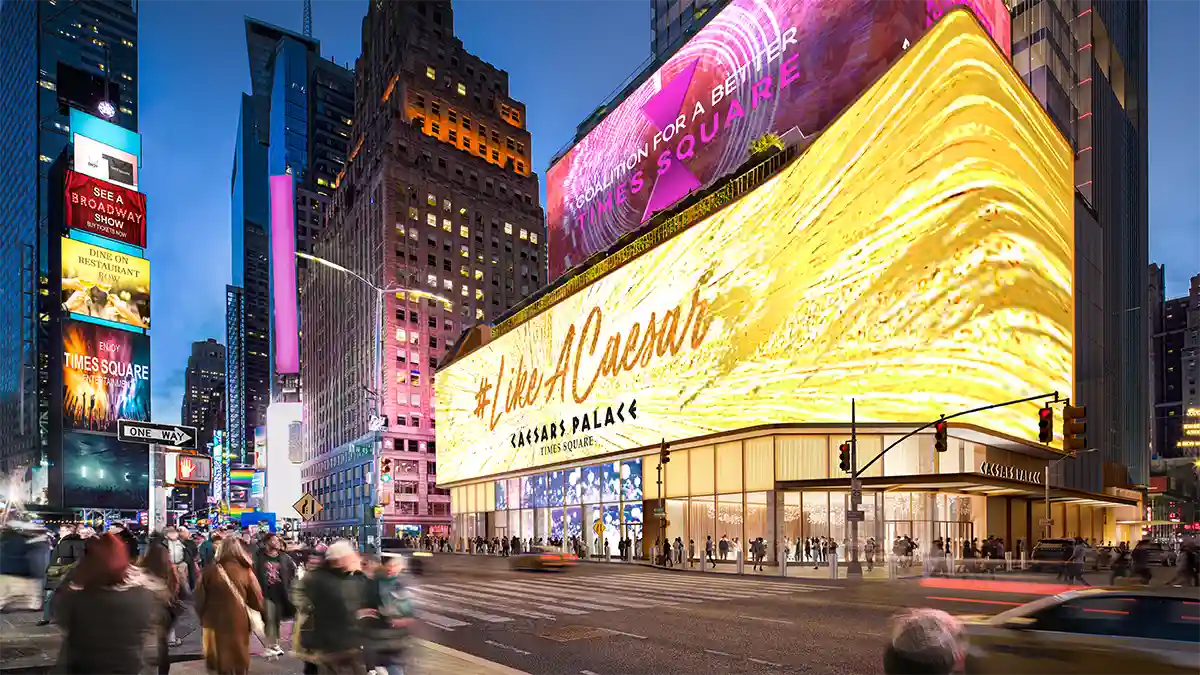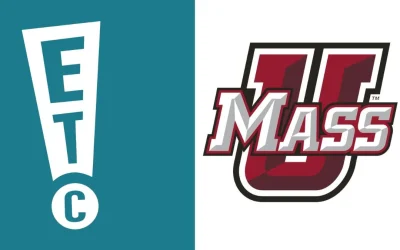Broadway leaders and neighborhood advocates are intensifying their fight against a proposed Caesars Palace casino at 1515 Broadway, warning that the glitzy project championed by Jay-Z’s Roc Nation, developer SL Green, Caesars Entertainment and Live Nation would undermine the character of Times Square’s theater district.
On Wednesday, members of the “No Times Square Casino” coalition—led by The Broadway League—gathered in Father Duffy Square, chanting “Broadway is not backing down.” “These developers don’t care about improving this neighborhood,” League president Jason Laks told the crowd. “We don’t need a casino to bring this area back; 14 million people came to Broadway last season without one.”
A $5.4 B Project With a $250 M Sweetener
Filed June 27, the Caesars Palace Times Square (CPTS) bid would convert the 54-story office tower at 1515 Broadway into a 150,000-square-foot gaming floor beneath a 992-room luxury hotel. Developers peg the direct price tag at $5.4 billion and forecast $7 billion in new taxes and $26.7 billion in local economic activity over the project’s first decade.
To blunt community objections, the consortium is earmarking $250 million in “community benefits.” That includes an $81 million public-safety plan designed by former NYPD commissioner Bill Bratton; $15 million toward a new civil-rights museum; $5 million for an LGBTQ+ health clinic run by Callen-Lorde; and seed funding for a Manhattan Plaza Capital Trust to preserve artists’ housing.
Another $225 million is targeted at Broadway itself: developers say the casino-hotel would generate demand for 835,000 additional theater tickets a year and fund $32 million in childcare, debt relief and rent assistance for stage workers, plus $20 million to buy tickets for underserved families.
SL Green executive vice-president Brett Herschenfeld called the proposal “the only bid that can be delivered quickly, is transit-accessible and prioritizes community investment.” Caesars CEO Tom Reeg touted the company’s “no ground-floor gaming” pledge and existing responsible-gaming programs. Roc Nation chief Desiree Perez framed the project as “investing in the soul of New York City,” while Live Nation would program concert and nightclub spaces inside the complex.
Supporters vs. Skeptics
Developers say more than 200 unions, businesses and civic groups now back the bid, including Actors’ Equity Association, 32BJ SEIU and the NYC Hospitality Alliance. Laborers’ union LIUNA argues the project would create 3,000 construction jobs and 3,800 permanent union positions averaging $120,000 a year with tips and benefits.
Opponents counter that 24-hour gaming could deter family audiences, add congestion and siphon spending from theater box offices. Manhattan Borough President Mark Levine and several community boards have urged the state Gaming Facility Location Board to reject the Times Square bid, one of at least four competing for up to three downstate casino licenses.
A coalition-funded poll last year found 71 percent of local residents opposed the plan. “The delicate balance between commerce and culture is what makes Times Square work,” Levine said. “Replacing theaters and restaurants with roulette wheels tips that balance the wrong way.”
If approved, Caesars Palace Times Square would open in roughly four years. Until then, the fight will test whether Times Square’s future hinges on blackjack tables—or the footlights that already draw millions.



